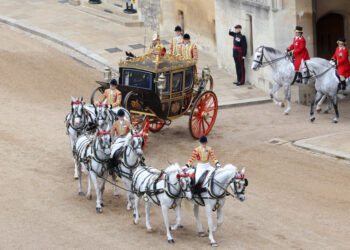 Minabai Seibofa is an International Business Protocol and Executive Protection Professional, with a decade experience in providing protocol management services. He is the Founder and Chief of Protocol, ShieldField Protocol Consultants Ltd, a Protocol, and Executive Protection consulting firm. In his next article published by WPM, he shares his view on Nigeria’s new National Anthem and on what role protocol plays in it.
Minabai Seibofa is an International Business Protocol and Executive Protection Professional, with a decade experience in providing protocol management services. He is the Founder and Chief of Protocol, ShieldField Protocol Consultants Ltd, a Protocol, and Executive Protection consulting firm. In his next article published by WPM, he shares his view on Nigeria’s new National Anthem and on what role protocol plays in it.
“Arise, O compatriots, Nigeria’s call obey, to serve our fatherland, With love and strength and faith…” These are just a few lines from Nigeria’s former national anthem, adopted in 1978, which replaced the previous anthem, “Nigeria We Hail Thee.”

In a series of events marking the one-year anniversary of President Ahmed Bola Tinubu of Nigeria, what used to be Nigeria’s first national anthem, “Nigeria We Hail Thee,” adopted in 1960, has now been reinstated as the new national anthem. The anthem adopted in 1978, “Arise, O Compatriots,” has been relinquished. On May 29, 2024, President Bola Ahmed Tinubu signed into law a bill reinstating “Nigeria We Hail Thee.”
Mixed reactions have followed the signing of this bill. While some see it as a misplacement of priorities by the government, others view it as a step in the right direction, particularly in taking pride in our identity as Nigerians, which they feel the anthem represents.
While people may have varying views about the national anthem, one thing is certain: it is now a law in Nigeria, and we will live with it until a new law is passed to change the national anthem, as was done on May 29, 2024, by the president.
The implications of this are significant. By this law, we will see the 64-year-old national anthem being sung or recited at major national events, including state ceremonies, sporting events both local and international, cultural festivals, and annual general meetings of corporate institutions. These events could be hosted by public/private institutions, embassies, educational and religious institutions, and well-meaning Nigerians where it is required to be performed as part of the activities.
As the nation gradually adopts the 64-year-old national anthem, it is important to note that it will take considerable time for it to align with those in this generation who never had the opportunity to sing “Nigeria We Hail Thee” when it was first adopted in 1960. A lot of learning will have to take place at every level of government, public and private institutions, as well as our religious bodies and the nation at large.

It shouldn’t be surprising if, during events, we occasionally experience protocol mistakes with the national anthem. Hearing “Arise, O Compatriots” instead of “Nigeria We Hail Thee” might still happen for some time as people adjust to the change. The national anthem is a powerful symbol of unity, pride, and identity for the nation. Therefore, it is important that it is sung correctly.
The anthem holds significant symbolic weight, reflecting the country’s history, pride, and unity. Misplaying it, whether intentionally or accidentally, undermines these values and can lead to public outrage, diplomatic tensions, and a loss of trust in those responsible for its performance.
Given this, the role of protocol professionals becomes even more critical. They must ensure that the correct anthem is played at all times, meticulously overseeing rehearsals, providing clear guidelines, and conducting thorough checks to prevent any faux pas.
The Role of Protocol Professionals in the Implementation of Nigeria’s New National Anthem.
Protocol professionals will play a critical role in the implementation of Nigeria’s new national anthem. Their responsibilities will include ensuring the smooth adoption of the new anthem in a manner that respects tradition, engages the public, and maintains a sense of unity, pride, and national identity among Nigerians.
These roles can be divided into two categories: public performances and monitoring implementation.

Public Performances: Protocol professionals in various institutions are to coordinate performances of the new anthem at major national events, including state ceremonies, sporting events, and cultural festivals. They must ensure that performers are well-versed in the proper rendition of the anthem according to protocol guidelines.
Protocol officers should ensure that the lyrics of the national anthem are projected via a projector or a large screen for those who are not familiar with the lyrics to sing along. This is very important because not everyone knows the lyrics of the 64-year-old anthem.
Monitor Implementation: Protocol officers should be assigned to attend events to oversee the correct implementation of the anthem protocols. These professionals are to provide immediate guidance and corrections if the anthem is not performed according to the established guidelines. They should also engage various communities, including cultural and religious leaders, in the promotion and adoption process to enhance acceptance and pride.
Final Thoughts
The return of Nigeria’s original national anthem, “Nigeria We Hail Thee,” marks a notable cultural and political shift under President Bola Ahmed Tinubu. While opinions on this change vary, the anthem’s reintroduction aims to evoke a renewed sense of national pride and identity. The role of protocol professionals is essential during this transition, ensuring the anthem is performed accurately and consistently at all events, both public and private.
These professionals coordinate public performances, making sure performers know the new anthem well and that the public can easily follow along with clearly displayed lyrics. They also oversee the implementation of anthem protocols, offering guidance and quickly addressing any issues to maintain the anthem’s integrity.
There will be challenges during this transition, as many Nigerians are unfamiliar with the 64-year-old lyrics. Protocol professionals will need to lead extensive educational efforts, collaborating with schools, cultural and religious institutions, and community leaders to encourage acceptance and proper use of the anthem. This approach will help prevent mistakes and gradually integrate the anthem into the national consciousness.
In the end, the national anthem is a powerful symbol of unity, pride, and identity. Properly using it is not just a matter of protocol but a sign of respect for the nation’s heritage and future aspirations. As Nigeria undergoes this significant change, the dedicated work of protocol professionals will be important in embedding “Nigeria We Hail Thee” into the nation’s heart, fostering a unified and proud Nigerian identity.




